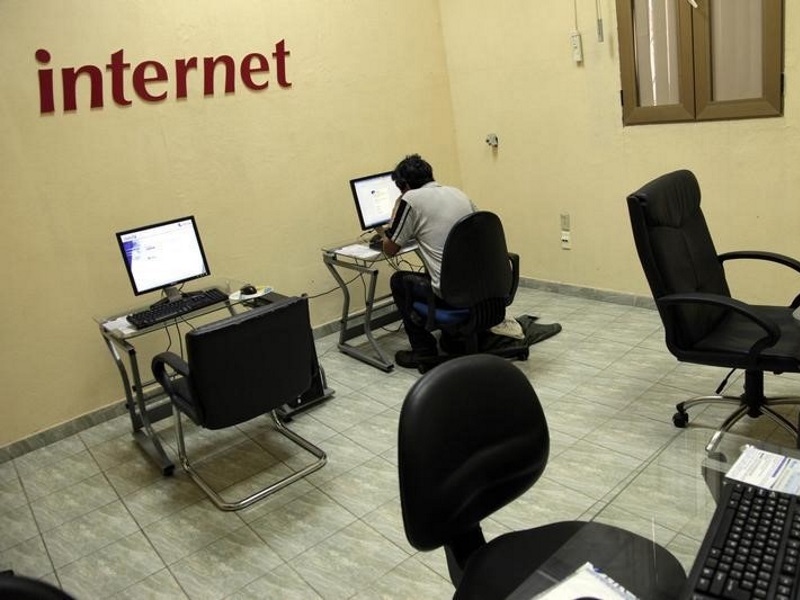- Home
- Internet
- Internet News
- 'Customisable' Internet Contributing to Selective Exposure: Study
'Customisable' Internet Contributing to Selective Exposure: Study

"We tend to look for information that confirms our points of view. It bolsters self-esteem, helps us effectively cope with political information overload, but on the other hand, it means we are minimizing exposure to information that challenges us," said lead researcher Ivan Dylko from University at Buffalo.
Technology allows us to customise our online information environment.
Dylko has developed a model, which explores customisability's political impact and suggests how the "automatic and consistent inclusion, exclusion and presentation of information" encourages political selective exposure.
Television viewers have historically made these choices.
Newspaper readers once had to decide which local paper to read, just as magazine buyers had to choose between Time and Newsweek, for example.
But what media consumers did with print and broadcast is not the same process that emerges online, nor is the idea of selective exposure as intuitive as it might seem, with researchers divided on its consequences.
"Scholars disagree about whether the Internet makes us more politically closed minded, or whether it exposes us to more politically diverse points of view," Dylko said.
Customisability is what separates past print, broadcast and face-to-face realities from present online communication realities.
Users now have an unprecedented amount of information to deal with - forcing them to be more selective than ever.
They have an unprecedented diversity of content choices - allowing them to find content that matches their beliefs and attitudes more closely than ever, and they have customisability technology providing nearly complete control over the information they receive.
"In a two-newspaper town, readers still might look at the rival paper in addition to their favoured publication because the newspaper choices were relatively limited, but online readers can find and then spend hours looking only at content that perfectly fits their psychological and political preferences," Dylko said.
The study was published in the journal Communication Theory.
Catch the latest from the Consumer Electronics Show on Gadgets 360, at our CES 2026 hub.
Related Stories
- Samsung Galaxy Unpacked 2025
- ChatGPT
- Redmi Note 14 Pro+
- iPhone 16
- Apple Vision Pro
- Oneplus 12
- OnePlus Nord CE 3 Lite 5G
- iPhone 13
- Xiaomi 14 Pro
- Oppo Find N3
- Tecno Spark Go (2023)
- Realme V30
- Best Phones Under 25000
- Samsung Galaxy S24 Series
- Cryptocurrency
- iQoo 12
- Samsung Galaxy S24 Ultra
- Giottus
- Samsung Galaxy Z Flip 5
- Apple 'Scary Fast'
- Housefull 5
- GoPro Hero 12 Black Review
- Invincible Season 2
- JioGlass
- HD Ready TV
- Laptop Under 50000
- Smartwatch Under 10000
- Latest Mobile Phones
- Compare Phones
- Honor Magic 8 RSR Porsche Design
- Honor Magic 8 Pro Air
- Infinix Note Edge
- Lava Blaze Duo 3
- Tecno Spark Go 3
- iQOO Z11 Turbo
- OPPO A6c
- Samsung Galaxy A07 5G
- Lenovo Yoga Slim 7x (2025)
- Lenovo Yoga Slim 7a
- Lenovo Idea Tab Plus
- Realme Pad 3
- Moto Watch
- Garmin Quatix 8 Pro
- Haier H5E Series
- Acerpure Nitro Z Series 100-inch QLED TV
- Asus ROG Ally
- Nintendo Switch Lite
- Haier 1.6 Ton 5 Star Inverter Split AC (HSU19G-MZAID5BN-INV)
- Haier 1.6 Ton 5 Star Inverter Split AC (HSU19G-MZAIM5BN-INV)







![[Sponsored] Haier C90 OLED TV | Dolby Vision IQ, 144Hz OLED and Google TV in Action](https://www.gadgets360.com/static/mobile/images/spacer.png)









